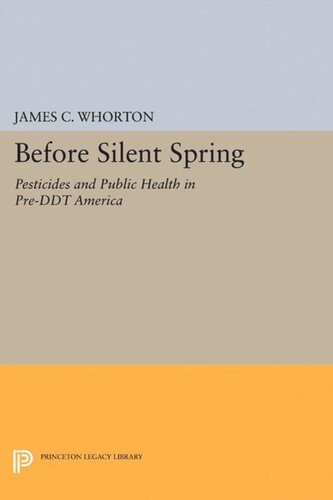

Most ebook files are in PDF format, so you can easily read them using various software such as Foxit Reader or directly on the Google Chrome browser.
Some ebook files are released by publishers in other formats such as .awz, .mobi, .epub, .fb2, etc. You may need to install specific software to read these formats on mobile/PC, such as Calibre.
Please read the tutorial at this link: https://ebookbell.com/faq
We offer FREE conversion to the popular formats you request; however, this may take some time. Therefore, right after payment, please email us, and we will try to provide the service as quickly as possible.
For some exceptional file formats or broken links (if any), please refrain from opening any disputes. Instead, email us first, and we will try to assist within a maximum of 6 hours.
EbookBell Team

5.0
88 reviewsModern consumers are well aware that the food they eat is tainted by pesticidal residues; they are less aware that their great-grandparents faced the same hazard. James C. Whorton's history of this public health menace emphasizes that insecticides have been contaminating produce since the introduction of chemical pesticides in the 1860s.
The book examines the period before the publication of Rachel Carson's famous Silent Spring, tracing the origins of the residue problem and exploring the complicated network of interest groups that formed around the issue. The author shows how economic necessities, technological limitations, and pressures on regulatory agencies have brought us to "our present dilemma of seemingly having to poison our food in order to protect it."
In Part I, the agricultural and medical literature of the past century is used to analyze the emergence by 1920 of a public health danger of serious proportions. Part II draws heavily on the unpublished records of the Food and Drug Administration to document how the ineffective handling of this danger established precedents for present pesticide abuses.
Originally published in 1975.
The Princeton Legacy Library uses the latest print-on-demand technology to again make available previously out-of-print books from the distinguished backlist of Princeton University Press. These editions preserve the original texts of these important books while presenting them in durable paperback and hardcover editions. The goal of the Princeton Legacy Library is to vastly increase access to the rich scholarly heritage found in the thousands of books published by Princeton University Press since its founding in 1905.